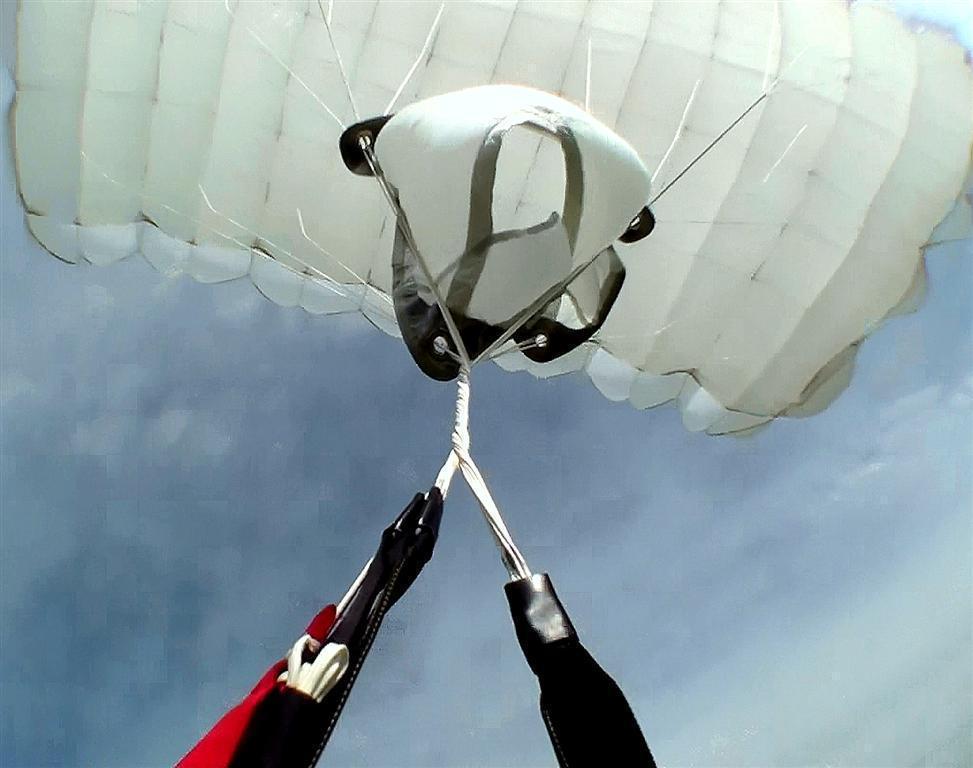Leaderboard
-
in Posts
- All areas
- Adverts
- Advert Questions
- Advert Reviews
- Videos
- Video Comments
- Blog Entries
- Blog Comments
- Images
- Image Comments
- Image Reviews
- Albums
- Album Comments
- Album Reviews
- Files
- File Comments
- File Reviews
- Dropzones
- Dropzone Comments
- Dropzone Reviews
- Gear
- Gear Comments
- Gear Reviews
- Articles
- Article Comments
- Article Reviews
- Fatalities
- Fatality Comments
- Fatality Reviews
- Stolen items
- Stolen item Comments
- Stolen item Reviews
- Records
- Record Comments
- Record Reviews
- Help Files
- Help File Comments
- Help File Reviews
- Events
- Event Comments
- Event Reviews
- Posts
- Status Updates
- Status Replies
-
Custom Date
-
All time
January 20 2016 - August 17 2025
-
Year
August 17 2024 - August 17 2025
-
Month
July 17 2025 - August 17 2025
-
Week
August 10 2025 - August 17 2025
-
Today
August 17 2025
-
Custom Date
07/07/2021 - 07/07/2021
-
All time
Popular Content
Showing content with the highest reputation on 07/07/2021 in Posts
-
3 pointsAlthough I haven't been in the aerospace industry a long time, I would think that aero engineering isn't the only way to get into the aerospace businees. Not everyone at the companies are doing computational fluid dynamics of air flows or calculating shear stresses in carbon fiber D-cell spars. There's plenty of mechanical & electrical engineering and software coding to be done. So there's a range of engineering fields to study which can be useful both in aerospace and elsewhere.
-
2 pointsI worked at NASA, for one of the contractors (space shuttle software). I can assure you it's way cool, and you're generally working with an exceedingly dedicated force of co-workers. We had lots of people who stayed working past retirement simply because they wanted to see the program through. While the specific job didn't always fit me personally, the environment more than made up for it. It's not a bad goal at all And Houston and Florida both have excellent dropzones. Also, frankly, a first year as a engineering major will suit you in whatever you end up in, because those classes are relevant to nearly any subsequent majors except for the history etc. But history etc. don't have as many classes that build on each other, so you can transfer from science/engineering to humanities without losing time -- generally you can't the other way, because you can't take Calc II before Calc I, etc. Wendy P.
-
1 pointHi folks, Well, he did dare them: Man’s racist rant dared neighbor to ‘come see me.’ Dozens of protesters showed up at his N.J. home - oregonlive.com Jerry Baumchen
-
1 pointPay for passion, work for income. When you turn fun into work, fun just becomes work. I've done both. For me, it's a lot happier/healthier to separate work and play.
-
1 pointNothing like the crowd's energy after a playoff win. It was crazy being part of it after the Sharks took out Detroit in the 2nd round a few years back. Cant imagine the insanity when the Habs skate the Cup after game 7. Yeah I know, probably not, but stranger things have happened and dammit Canada deserves a Cup after all these years. I'm a Sharks and Toronto fan, so I'm used to rooting for the team most likely to go golfing. Go Habs!!
-
1 pointI have now gone 19 months without getting a common cold or any other respiratory illness. This is the longest cold-free period that I can remember. My wife has gone even longer. I attribute this to mask wearing in public places and caution about contact with possibly infected surfaces. Despite being fully vaccinated since February, we plan to continue masking up.
-
1 pointIf green was a religion it would make more sense than any traditional religion.
-
1 pointHere are some suggestions about factors contributing to the high rate of violence with firearms in the US compared to other first-world countries, based on my personal experience having lived in Canada for ~30 years, in Europe for a few years, and in the US for ~30 years. 1. Although there are angry people everywhere, there seem to be a lot more of them in the US. This includes everything from people who feel unfairly treated by the world to people who have learned that they can often intimidate other people and so get what they want by being hyper aggressive and threatening. Such people rarely if ever recognize that they contribute to their own problems in various ways and instead blame everyone else. Related to this is the fact that US culture is more competitive in a sink-or-swim sort of way, with almost all the emphasis on "you're on your own" and much less on "you're part of a society and we all need to look out for one another". 2. Economic disparities are larger in the US than in comparable first-world countries, with more barriers to moving out of the economic class to which you are born. The latter seems paradoxical in a country that prides itself on a culture that claims that anyone can get ahead by nothing more than hard work. However even a small contact with the "justice system" can create lifelong barriers to advancement, and such contact is much more likely for the poor, and for non-whites (although poor white people can be impacted for sure). As an example, in Georgia almost any felony conviction, which could be for possession of a tiny amount of pot, or (until recently) theft of anything worth more than $50, leads automatically to a lifetime ban on qualifying for a state license for anything. This means you can never work in nearly 80 professions state-licensed professions, including becoming a barber, cosmetologist, electrical contractor, plumber, conditioned air contractor, auctioneer, utility contractor, registered trade sanitarian, and scrap metal processor, among others (https://georgiaopportunity.org/access-professional-licenses-benefit-returning-citizens/). BTW this is the sort of thing that is included in "critical race theory"). These issues contribute to point 1. 3. The US is more tribal than any other developed country I have lived in. People tend to view members of other tribes with suspicion at best, and open hostility at worst. Members of other tribes are often seen as not fully human, and as undeserving of equal treatment under the law. Successful members of "other tribes" are often assumed to have gained their success unfairly (government handouts, affirmative action, white privilege, etc) rather than by honest effort. This contributes to point 1, and reduces "others" to "not really American" or "not fully human". 4. Although the US has laws against violent behavior, there is more acceptance of the idea that violence is sometimes necessary. American culture tends to celebrate the "outlaw", be it the John Wayne-style gunslinger or the hip-hop gangster. Cold-blooded killers who murdered numerous innocent people become folk heroes (Billy the Kid, Bonny & Clyde, etc). Although few would recommend using violence as the first resort to get your way, many quietly accept that sometimes you "just have to stand up and do what you have to do". We see this strongly in "stand your ground" laws that place "standing up and not allowing yourself to be pushed around" over retreating (even when it would be easy to avoid violence), even if the result is people being killed or maimed. The US entertainment industry is largely built around the idea that violence is sometimes the best response (probably because violence is more exciting and makes for more interesting story lines than negotiation and diplomacy). Also the US is much more militaristic than other developed countries, which (rightly or wrongly) supports the notion that violence is sometimes (or often) an appropriate way to respond to a challenge. 5. Firearms are easily accessible. Even if you are legally prohibited and so can't buy from a licensed dealer, you can easily get whatever you want through a private sale. Firearms are easily accessible in other countries. You can buy a semi-automatic rifle (but not a handgun) for hunting in Canada. So why is crime involving firearms less common by a wide margin in other countries? I suggest it's the combination of points 1-4, and no doubt others. How can this be fixed? I have no idea, certainly not in the short term. Perhaps that is why gun control is so attractive, it seems to be more "do-able" than fixing all the other things that lead to a relatively large population of angry people who can justify to themselves that violence is sometimes necessary, and anyway all those other people aren't really people, or Americans, or whatever. Don
-
1 pointSo I guess I'm DZs resident devil's advocate...so here we go. What I haven't seen asked/mentioned is why engineering? Is this something you have a passion for, or at least did at some point? Or, is this your parents choosing your path (maybe your parents or grandparents were an engineer and they want you to follow the family legacy)? If it's the latter, then maybe your allure to skydiving is because it's your choice, your path, and not what was decided for you. I'm not telling you to skip college, but there is nothing wrong with wanting to take another path than what your parents have laid out for you, if that is the case. I have known many people who were "bribed" with things like a free education at a top school so that they could be just like dad/mom/gran dad/etc and fulfill the family legacy. I'm talking people who spent many years going to school to be things like a dentist, because mom and dad said, just to discover that they would rather do web design or something completely different. Some feel like they wasted years that they could have used for a degree in what they wanted. Others feel the experience was worth it, nonetheless. My story echoes some of the above. I wanted to go to a specialized trade college that was not an accredited college. My parents refused to pay for it and since I was financially tied to them still, I had little to no way to pay for it myself without a student loan(which needed a co-signer). I ended up in a community college for the same type of program that would net me an actual degree. I got screwed because the college dropped the program for a few years after I was already in it. Short story, I never got to fully follow that dream... A few years went by and I had discovered a very passionate hobby(not skydiving). I spent my free time taking training classes and enjoying the community. At some point I realized I could make a good career for myself in this field, so I started doing more and more courses and earning more and more certifications. I now have a good paying stable job in a field that I am still very passionate about. This career has afforded my ability to skydive, which is a more recent venture. That all being said, I have a few regrets being that I let my parents more or less make some big life decisions for me through the years(college was only a single instance). I also have a less than stellar relationship with them somewhat stemming from that. I guess my point is, if engineering is a path that was chosen for you, not by you, then you have every right to be apprehensive. Sometimes it's better to be happy doing something you love rather than doing something just to pay the bills...but paying bills and having money is pretty important as well. You need a healthy balance of both happiness and income. It can also be pretty hard to decide on a career path that you will remain happy with down the road when starting so young. It took some ageing/growing for me to find my path, as it does for many. So, like many, I started jumping after having a career, insurance, house, car, and enough money to not work for a few months if I were injured. Whatever you choose, make sure you get most of those things crossed off the adulting list before getting back into skydiving. You seem like a smart young man. Get your life "established" then come back to jumping. Doesn't matter how you do that, as long as you are happy and well.
-
1 pointYou're getting some great advice here. I'm rooting for you to take it (and the deal). One thing I would add is, if you haven't already, have your parents read this thread. It might give them a kinder view of the community you've entered.
-
1 pointOk, I've read through the whole thing. I don't agree with some of the things said, but that's ok. Not going into specifics about that. My $0.02 (worth about that much): You're being offered a full ride scholarship at a major college. TAKE IT!!!!! The offer includes the idea that you don't jump for a few years (That's the other Golden Rule - The one who has the gold makes the rules) So what? The sky will be there. You likely wouldn't be able to jump enough to stay super current and do well in school. Purdue is close enough to Chicago that you could go play in the tunnel from time to time. Once you graduate and get a good job (with virtually no debt), you will be set. Billvon's post illustrates that well.
-
Newsletter







